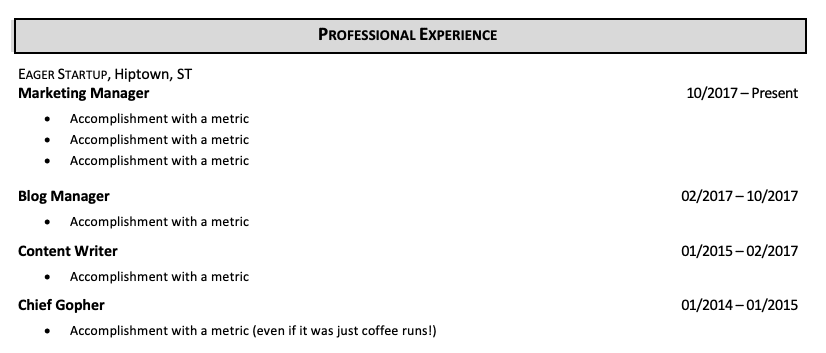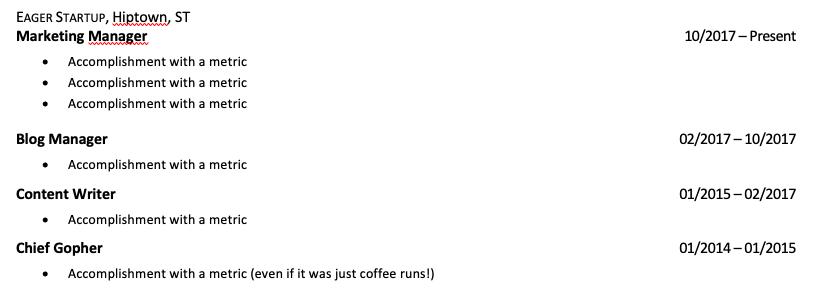Do You Need to List Months on a Resume?

You need to include accurate dates for every job on your resume… but do you need to list the months with them? There’s no hard and fast rule, so read on to find out whether you should include months on your resume in your situation.
By: Jennifer Meehan | Contributor for Let’s Eat, Grandma
You need to include accurate, honest dates with the positions you list on your resume. But should you add months to your work history, or just list years?
Grandma’s advice: It depends.
Minding the Gap
The main reason for leaving months off your resume is to disguise gaps in your work history. It’s true that you want to do what you can to minimize the impact of those gaps on your resume, and removing months is often a good way to cover short gaps. But remember that the pandemic in many cases has made work gaps inevitable this year.
Ready for more job search help?
Sign up for a free Senior Writer Resume Critique to see what's holding you back from landing interviews. One of our top professional resume writers will give you personalized feedback on the top 3 items you can improve based on our expert practices!
As we’ve said before, recruiters will generally be more understanding given these extraordinary circumstances. Besides, you’ll need to honestly explain your gap anyway.
On the other hand, why would you generally want to leave months on? One good reason is to avoid confusing some Applicant Tracking Systems (ATS). If certain ATS’s only see years, they might parse your dates incorrectly in the recruiter’s view, which could cause issues for how the recruiter sees your application and slow them down (though it likely won’t cause you to be “auto-rejected”).
If you figure you’ll be going through an ATS and you’re trying to cover a career gap, weigh this risk factor against the strategy of removing months and come to your own decision. (And always try to get your application sent straight to a human when possible.)
Regardless of the type of ATS (or lack of one at some small employers), it’s important to list your dates consistently for each position, whether it’s November 2016, Nov. 2016, or 11/2016. Choose one, please. And in another formatting note, it’s best to put your dates on the right-hand side of your resume; just make sure they line up. That way, you won’t waste valuable space you could use to add more bullet points.
For example:
Flag Your Promotions with Months on Your Resume
If you were lucky enough to get promoted within the same company, adding months along each job title is essential to show the progression.
Here’s how:
Years and years
On the other hand, you may want to include only the year for short-term gigs. Say you worked as a contractor writing content for a new website. Instead of saying you worked from May to August, you could just list the date as 2019. Be sure to include the word Contract in your job title as well.
However, you might choose not to include that three-month job at all if it wasn’t relevant to the job you’re applying to. A gap of a few months isn’t usually a problem.
Another reason for only giving the year is for relevant but older jobs — that is, jobs you held earlier than 10-15 years ago. Especially if you worked for a well-respected and familiar employer, as long as the skills are still applicable in 2021, you could include jobs like these under “Other Relevant Experience” or “Early Career Experience”:
- Prestigious University, Office of Communications, Graphic Designer | 2008-2010
- Prestigious Creative Agency, Staff Designer | 2007-2008
In this instance, you may not need bullet points describing your work and accomplishments, and you might not even include dates at all if ageism is a concern for you.
Grandma wants you to get the job. Be accurate, consistent, neat, and truthful. A well-written resume, whether or not you include months, will make a good first impression and get you called in for an interview.
Ready for more job search help?
Sign up for a free Senior Writer Resume Critique to see what’s holding you back from landing interviews. One of our top professional resume writers will give you personalized feedback on the top 3 items you can improve based on our expert practices!


